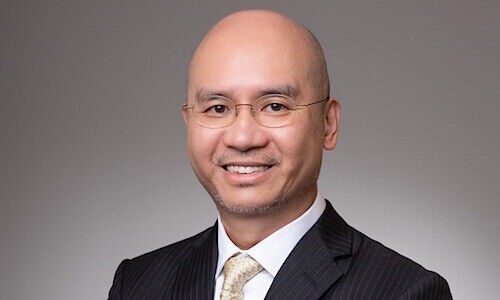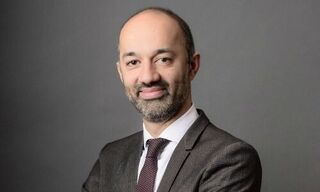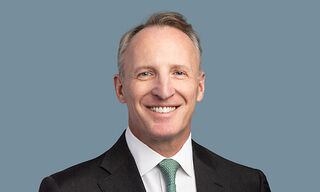As Ralph Hamers rounds out his first year running the world’s largest wealth manager, finews.asia looks at why he hasn’t yet left a strong mark.
At a recent private gathering headlined by Ralph Hamers, the 55-year-old Dutch CEO of UBS was relaxed and persuasive, speaking freely about his first 12 months in Zurich and Switzerland’s strengths and challenges.
His countanance as a confident leader of transformation slipped, only briefly, when asked about the possibility that criminal charges in a revived money laundering investigation might be levied against him.
Revealing Glimpse
The glimpse reveals how Hamers’ initial revitalization ambitions for UBS are complicated by past issues unrelated to the Swiss lender. Internal critics at UBS – of which there are many – have seized upon this vulnerability.
«He has invested a lot of time but we haven’t seen much execution,» an executive who has worked with him told finews.com. «He hasn’t really set strong accents, but it may be too early for him to have done so.»
Hamers is spearheading a more collaborative transformation project at UBS, an organization notoriously difficult to move. The Swiss bank has at least one additional layer of management complexity than crosstown rival Credit Suisse as well as a coterie of holdovers.
Vestige Of Previous Regimes
No stranger to painful restructurings, Hamers is starting with UBS outwardly looking fairly healthy: The Swiss wealth manager’s profits surged by nearly two-thirds in the second quarter as fresh money flooded in. UBS, which trades around book value vs far lower for most peers, is buying back up to $4 billion of its own shares.
Archegos is the wrinkle: UBS lost roughly $861 million on its dealings with the defunct hedge fund, which UBS Chairman Axel Weber apologized for. UBS had similar – though less dramatic – issues than Credit Suisse, which lost more than $5 billion, in Archegos’ concentrated positions and in lack of awareness of the same exposure at other banks, a source familiar with the matter said.
By month-end, Hamers and UBS will know the outcome of a years-long French criminal investigation, a vestige of former CEO Sergio Ermotti.
Vague Vs Down-to-Earth
Hamers’ detractors – UBS has «many sharpshooters» as one person familiar with the bank’s hierarchy puts it – complain about his proclivity for softer, informal video messages over a hard-charging restructuring mandate.
Hamers insists that his strategy around UBS’ «purpose» for clients, revealed after six months centered, is down-to-earth (finews.com criticized it as lofty and vague). He has eschewed deep restructuring in favor of kicking off a relatively small round of spending and job cuts (UBS shut 44 branches in the first three months of 2021, for example).
Hamers has internally signaled that overall staffing levels will remain constant, even if he sees technology eventually replacing as much as 30 percent of wealth management jobs. One of the new CEO’s strongest signals thus far was the promotion of chief technologist Mike Dargan to top management. A fledgling hybrid adviser launched under ex-CEO Ermotti has now accumulated $4.2 billion in assets from more than 3,000 clients, Hamers said in July.
Sustainability Plan Due
UBS investment bank, where fintech has wrought disruption in recent years, had already been using «pods,» analogous to agile squads, in two-week sprint sessions. The wealth arm is currently piloting this in Switzerland and internationally, according to several people familiar with the matter.
The transformation «story» is a tougher sell internally than a survival-minded restructuring, as when Hamers took over at ING in 2013. Besides Dargan and chief lawyer Barbara Levi, Hamers has left top management intact.
Hamers in May underscored his sustainability ambitions for UBS by designating top asset manager Suni Harford as its management advocate and giving ex-trader Michael Baldinger a weightier say. The CEO is expected to unveil UBS' contribution to fighting climate change by year-end.
Carte Blanche For Heir Apparent
Hamers is credited with affording carte blanche to Iqbal Khan, the ambitious Swiss banker who has co-helmed UBS’ $3 trillion private bank since 2019. The role of the 45-year-old, who cut his teeth auditing UBS for EY and then at Credit Suisse’s private bank, as heir apparent seems as clear as expectations Hamers will unfurl bolder moves.
«I would say a lot has to happen over the next 24 months, otherwise Iqbal Khan is going to be CEO,» the executive said.


























